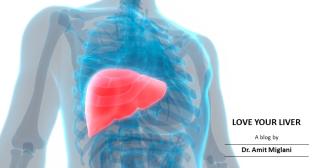
How to Control SGPT and SGOT? Natural Methods
The liver helps in metabolism, detoxification, storage, protein synthesis and other vital processes. It becomes important to maintain liver health to maintain essential body function. SGPT (serum glutamic-pyruvic transaminase) and SGOT (serum glutamic-oxaloacetic transaminase) are the two important liver enzymes that can provide valuable information about liver health. Abnormality in the liver function can leak these enzymes into the bloodstream, leading to increased levels of SGOT and SPT in the blood. This article explores strategies to control SGPT and SGOT using natural methods.
Understanding SGPT and SGOT
The range for SGPT is about 7 to 56 units per litre of serum, and the normal range of SGOT is about 5 to 40 units per litre of serum. Elevated levels of SGPT and SGOPT can signal liver disease and damage. These values are also influenced by certain underlying conditions. Here are some of them:
Causes of high SGPT and SGOT levels
1. Liver conditions
- Hepatitis: The conditions characterised by liver inflammation, often caused by viral infections, can lead to elevated enzyme levels.
- Fatty liver disease: Alcoholic (observed in chronic drinkers) and non-alcoholic (observed in obese) fatty liver disease can increase SGOT and SGPT levels.
- Cirrhosis: Chronic liver damage from various causes leading to scarring and liver failure.
2. Heart conditions
- Heart attack: Damage to heart muscle can release enzymes into the bloodstream, affecting SGOT levels.
- Heart failure: Chronic heart conditions can also impact liver function and enzyme levels.
3. Muscle injuries
- Muscle trauma: Injuries or strenuous exercise can cause muscle damage, leading to elevated SGOT levels.
- Muscular dystrophy: A group of genetic diseases that causes loss of muscle mass followed by progressive weakness.
Symptoms
The symptoms associated with abnormal SGPT and SGOT can vary depending on the underlying causes. Here are some of them:
- Yellowing of skin and eyes
- Abdominal pain
- Appearance of dark urine
- Persistent tiredness
- Loss of appetite
- Nausea and vomiting
- Shortness of breath
- Irregular heartbeat
- Feeling lightheaded
It is crucial to consult health professionals for proper evaluation and diagnosis as elevated levels of both enzyme levels alone do not constitute a diagnosis but indicate the need for further assessment.
Steps to control SGPT and SGOT levels
When an individual experiences elevated SGPT and SGOT levels, it is essential to adopt lifestyle changes and dietary adjustments to support liver health. One of the most effective treatments is the natural methods that focus on liver detoxification and support. Diseases of the liver can be devastating, as no other organ in the body can compensate for all its important functions. Liver health can be improved by following some key points, such as:
Healthy diet
- Balanced nutrition: Incorporate a diet rich in fruits, vegetables, whole grains and lean proteins.
- Reduce alcohol consumption: Limit the alcohol consumption to reduce the risk of liver damage.
- Avoid processed foods: Minimise intake of processed and high-fat foods that can strain the liver.
- Consume antioxidant-rich foods: To detoxify our body, an adequate supply of antioxidants is important. Grapefruits, garlic, berries, green tea and nuts are rich sources of antioxidants.
Regular exercise
- Moderate activity: Engage in regular physical activity to maintain overall health and support liver function.
- Avoid overexertion: Be mindful of not overexerting yourself, which can lead to muscle injuries and elevated enzyme levels.
Regular medical check-ups
- Routine blood tests: Regular monitoring of liver enzyme levels can help identify problems early.
- Consult healthcare providers: Seek medical opinion if you notice symptoms such as jaundice, fatigue or abdominal pain.
Medication management
- Use medications as guided by the physician: Do not overuse or practice self-medication or Follow the prescription’s warnings.
- Be aware of side effects: Certain medications can elevate liver enzymes, so discuss potential side effects with your doctor.
Conclusion
Maintaining liver health is significant for overall body health. Understanding the causes of elevated SGOT and SGPT levels and taking proactive steps to manage them can significantly enhance and promote long-term liver health. For any concerns about liver enzyme levels, consult your healthcare provider for personalised advice and treatment.



















